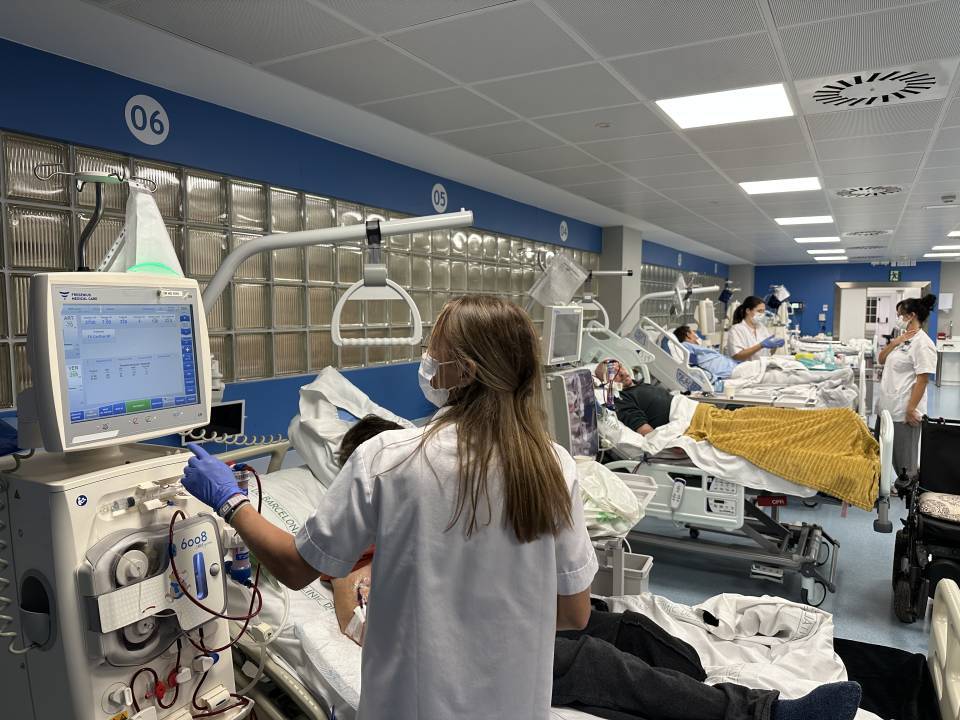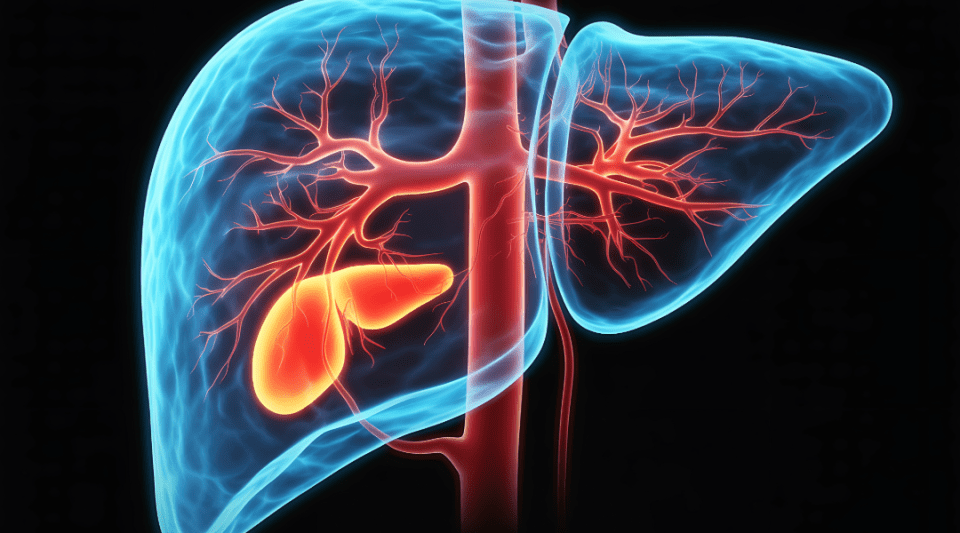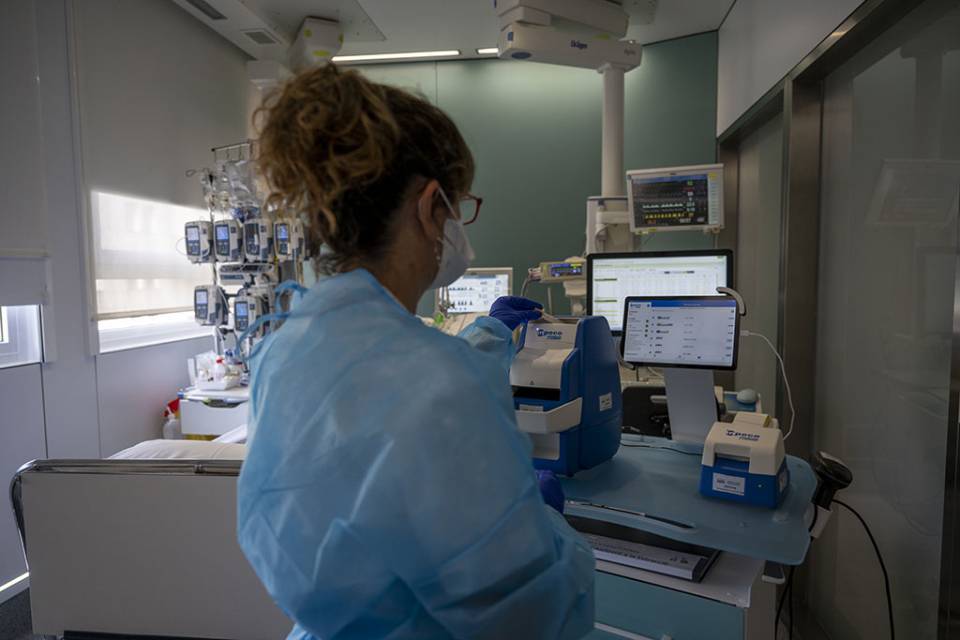The nocturnal dialysis programme was created to address patients’ needs, since many of them have an active working life and this schedule allows them to combine their working life with their treatment. Moreover, this treatment lasts longer and is more intense, which is why better results have been obtained.
Dialysis is the artificial process by which waste products and excess water are removed from the body. This process is necessary when the kidneys are not working properly. The haemodiafiltration procedure is performed in this nocturnal dialysis programme. Haemodiafiltration is a procedure that combines diffusion and convection. In addition to the usual haemodifiltration diffusion, large amount of ultrafiltrate (water, electrolytes and urine toxins) are extracted from the patient’s blood plasma by convective transport alone, which results in a high clearance. During haemodiafiltration, the patient’s blood passes through a series of lines into a machine where it reaches a semi-permeable membrane (the filter), which removes waste and water. To compensate for this loss in volume (40-50 litres per session), toxin-free replacement fluid is required, and finally the blood is returned to the patient. The Hospital Clínic is the only hospital in Spain to carry out this type of dialysis, which is more efficient and performed every other day.
The nocturnal dialysis sessions are normally performed on alternate days (4 or 3 days, depending on the week). Patients arrive at 10 pm and leave the hospital between 7 and 8 am the next morning. Whilst the patient sleeps, the haemodiafiltration treatment is performed (currently the most effective blood purification technique) for longer that usual (8 hours, double the usual time) and more frequently. One week the patient comes in on Monday, Friday and Sunday and the following week on Tuesday, Thursday and Saturday. With this type of more concentrated sessions, it is more physiological and the heart suffers less. In all dialysis treatments—and this is no exception—the nursing staff play a key role.
The patients who receive this treatment generally lead a very active life and are professionals from a wide range of fields such as: university and school teachers; professionals with their own business; lawyers; professionals in the construction sector, etc. The average time patients spend in the programme is 35 months.
One of the complications of conventional dialysis is what is known as ‘post-dialysis fatigue syndrome'. Patients are tired, fatigued (it can last for 2-6 hours). Nocturnal and more frequent haemodiafiltration helps to reduce the post-treatment symptoms. In the past, patients who had to undergo dialysis suffered from nausea, vomiting, discomfort, etc. Now, the treatments can be far more personalized.
If we focus on the results of the programme, since September 2007, 100 patients have already been included in the Hospital Clínic’s nocturnal dialysis programme. Of the latter, 68 patients have received a kidney transplant (61 from deceased donors and 7 from living donors).
At the same time, the prospects of very good tolerance to the technique and greater efficacy have been fulfilled. Moreover, the patients report feeling better and, at the same time, the number of drugs they have to take has been reduced. For example, no phosphate binders are administered, antihypertensive drugs have been greatly reduced, patients do not need any medication to reduce excess potassium, and the drugs to control anaemia such as erythropoiesis-stimulating agents (erythropoietin) have been reduced by half.
Patients who had to resort to dialysis treatment have chronic kidney disease (CKD), which is defined as the progressive and irreversible deterioration of kidney function. In other words, the kidneys lose their ability to eliminate toxins and control the volume of water in the body. Years can pass between the initial diagnosis and the chronic phase. When the kidneys stop functioning, they also stop producing a series of hormones that help regulate blood pressure and stimulate the production of blood cells (erythropoietin) or the absorption of calcium from food to maintain healthy bones (vitamin D).
Dr. Francesc Maduell, head of the Dialysis Section of the Hospital Clínic Barcelona Nephrology and Kidney Transplantation Service, stresses the fact that, “the figures from this nocturnal dialysis programme show that it is an efficient and effective treatment, and that at the same time it facilitates work and family rehabilitation and therefore improves the patient’s quality of life”.




